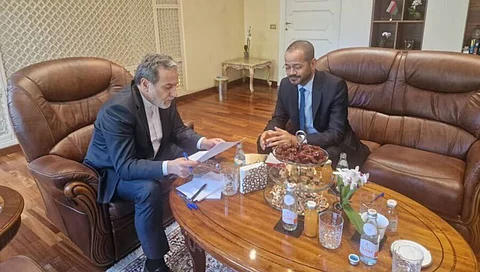

Iran and the United States concluded their fifth round of indirect nuclear negotiations in Rome on May 23, with Omani mediators acknowledging “some but not conclusive progress.”
Iranian Foreign Minister Abbas Araghchi described the talks as “professional” and suggested a “reasonable path forward” exists, though both sides maintained firm public positions.
The discussions, aimed at striking a new nuclear agreement following the collapse of the 2015 Joint Comprehensive Plan of Action (JCPOA), underscored persistent divides: Washington seeks to prevent Iran from acquiring nuclear weapons, while Tehran demands relief from crippling sanctions.
Enrichment Dispute
The core disagreement centers on uranium enrichment. The U.S. insists Iran halt all enrichment—a “red line” for Washington—while Iran asserts its right under the Nuclear Non-Proliferation Treaty to enrich uranium for civilian purposes. Araghchi reiterated Tehran’s stance: “Zero nuclear weapons means we have an agreement. Zero enrichment means we do not.” Iran’s Supreme Leader Ayatollah Ali Khamenei dismissed U.S. demands as “nonsensical,” casting doubt on the likelihood of a breakthrough.
Iran has escalated uranium enrichment to 60% purity, far exceeding the JCPOA’s 3.67% limit, and refuses to ship its stockpile abroad. The U.S., meanwhile, continues its “maximum pressure” campaign, imposing sanctions that have slashed Iran’s oil exports and destabilized its construction sector. Tehran has warned it will hold Washington “legally responsible” for any Israeli military strikes on its nuclear facilities—a threat underscored by recent meetings between Israeli Mossad chief David Barnea and U.S. officials in Rome.
Regional Risks and Expert Skepticism
Omani mediators expressed cautious hope for a “sustainable agreement,” but analysts remain skeptical. Wendy Sherman, a former U.S. nuclear negotiator, noted the improbability of dismantling Iran’s entrenched nuclear program, warning that diplomatic failure risks regional conflict. The shadow of Israel’s unilateral military options looms, with Tel Aviv signaling readiness to act if talks falter.